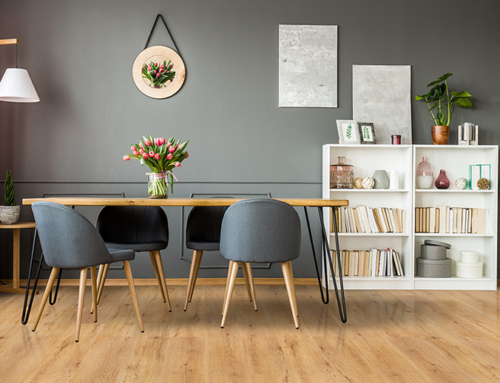Solid hardwood flooring in Atlanta is often celebrated for its timeless elegance, natural beauty, and the warmth it adds to any space. When considering new flooring options, homeowners frequently question whether solid hardwood is a practical choice for their needs and lifestyle. Additionally, the longevity of solid hardwood floors is a common concern, given the investment involved in selecting and installing premium flooring. In this comprehensive blog, we will explore the merits of solid hardwood as a flooring choice and delve into its durability and lifespan, providing a well-rounded perspective for those contemplating this classic flooring option.
The Timeless Appeal of Solid Hardwood Flooring
Solid hardwood flooring stands out for its unparalleled natural beauty and the unique character it brings to a home. Each plank tells a story through its grain patterns, color variations, and natural imperfections, making every hardwood floor distinct. This natural aesthetic appeal is versatile enough to complement a wide range of interior design styles, from traditional to contemporary, adding a touch of sophistication and warmth to any space.
Durability and Strength
One of the most significant advantages of solid hardwood is its inherent durability and strength. Hardwood floors are capable of withstanding the demands of daily life, including foot traffic, furniture movements, and general wear and tear. The type of wood species chosen can also influence the floor’s durability, with options ranging from the softer pines to the extremely hard species like Brazilian cherry and ebony, catering to different needs and preferences.
Longevity: A Lifetime Investment
Solid hardwood floors are renowned for their longevity. With proper care and maintenance, they can last for decades, often outliving the homeowners themselves. Unlike other flooring options that might need replacing every 10 to 20 years, solid hardwood can be sanded and refinished multiple times throughout its life. This ability to rejuvenate the surface means that scratches, dents, and signs of wear can be effectively erased, restoring the floor to its original beauty or even altering its finish to adapt to changing interior design trends.
The Value of Solid Hardwood Flooring
From a financial perspective, solid hardwood floors are an excellent investment in your home. Not only do they add aesthetic value, but they can also increase the resale value of your property. Prospective buyers often view hardwood floors as a desirable feature, potentially making your home more attractive in the competitive real estate market. The initial cost of hardwood flooring is generally higher than other flooring options, but when amortized over its long lifespan, the investment proves to be cost-effective.
Environmental Considerations
For those concerned about environmental sustainability, solid hardwood flooring can be a responsible choice when sourced from certified, sustainably managed forests. Unlike synthetic flooring materials, wood is a natural, renewable resource. Additionally, the longevity of hardwood floors means less frequent replacements, reducing the demand for new materials and contributing to waste reduction.
Suitability Across Various Spaces
Solid hardwood flooring is versatile in its application, suitable for installation in living rooms, dining rooms, bedrooms, and hallways. However, it’s worth noting that solid hardwood may not be the best choice for areas prone to high moisture levels, such as bathrooms and basements, as excessive moisture can cause the wood to warp or swell. In these cases, engineered hardwood or other moisture-resistant flooring options might be more appropriate.
Maintenance and Upkeep
Maintaining solid hardwood floors is relatively straightforward, requiring regular sweeping or vacuuming to remove dirt and grit that could scratch the surface. Occasional cleaning with a wood-specific cleaner helps maintain the finish, and protective measures such as using felt pads under furniture and rugs in high-traffic areas can extend the floor’s life. Avoiding excessive moisture and direct sunlight can also prevent damage and discoloration over time.
Challenges and Considerations
While solid hardwood flooring offers numerous benefits, there are some challenges to consider. The initial cost can be prohibitive for some budgets, and installation requires professional expertise to ensure proper fitting and finishing. Hardwood floors can also be susceptible to scratches and dents from pets, high heels, and heavy furniture, although these can be sanded out during refinishing.
Conclusion
Solid hardwood flooring is an excellent choice for those seeking a combination of beauty, durability, and longevity in their flooring. Its timeless appeal, ability to withstand the rigors of daily life, and the potential to refresh and renew its surface make it a worthwhile investment for many homeowners. While considerations such as cost, suitability for different environments, and maintenance requirements should be taken into account, the long-term benefits of solid hardwood floors often outweigh these concerns. With proper care, solid hardwood flooring can last a lifetime, enhancing the beauty and value of your home and providing a warm, inviting foundation for your living spaces. We suggest reading our google update about solid hardwood floors and visiting our Rustic Wood Floor Supply Store in Atlanta.
Author Profile
- I have worked in hardwood flooring for the last 8 years. Use to run a company of residential crews as well as a company with gym flooring. If you need floor installation or refinishing help, I should have an answer or at least get you in the right direction.
Latest entries
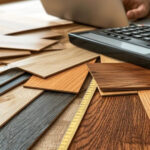 FlooringJanuary 15, 2026Does New Hardwood Flooring Increase Your Home Value?
FlooringJanuary 15, 2026Does New Hardwood Flooring Increase Your Home Value?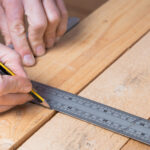 FlooringJanuary 14, 2026Can You Refinish Engineered Hardwood?
FlooringJanuary 14, 2026Can You Refinish Engineered Hardwood?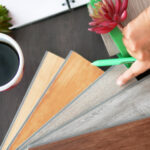 FlooringJanuary 10, 2026What Wood Floor Color Do I Choose?
FlooringJanuary 10, 2026What Wood Floor Color Do I Choose?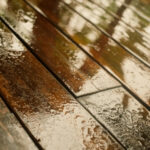 FlooringJanuary 9, 2026How To Prevent Hardwood Floor Moisture Problems?
FlooringJanuary 9, 2026How To Prevent Hardwood Floor Moisture Problems?

